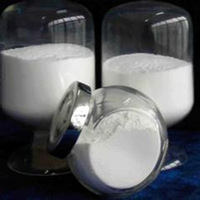描述
Product Description: Erythromycin
Product Alias:
- Erythromycin Ethylsuccinate
- Erythromycin Stearate
- Erythromycin Base
Appearance: Erythromycin is a white to off-white crystalline powder or granules. It is odorless and has a slightly bitter taste. The powder is soluble in organic solvents such as ethanol and methanol but has limited solubility in water.
Character: Erythromycin is a macrolide antibiotic that belongs to the class of drugs known as macrolides. It is derived from the soil bacterium Saccharopolyspora erythraea. Erythromycin exhibits a broad spectrum of antimicrobial activity against both gram-positive and some gram-negative bacteria. It works by inhibiting bacterial protein synthesis, thereby preventing the growth and reproduction of bacteria.
Category: Erythromycin falls under the category of antibiotics and is widely used in the pharmaceutical industry for the treatment of various bacterial infections.
Chemical Formula: The chemical formula of Erythromycin is C37H67NO13.
Molecular Formula: The molecular formula of Erythromycin is C37H67NO13.
Product Application in the Pharmaceutical Industry: Erythromycin is a versatile antibiotic that finds extensive application in the pharmaceutical industry. It is commonly used for the treatment of respiratory tract infections, skin and soft tissue infections, and certain sexually transmitted diseases. Erythromycin is also effective against certain types of bacteria that cause pneumonia, bronchitis, and sinusitis.
Erythromycin is available in different formulations, including tablets, capsules, suspensions, and ointments. The choice of formulation depends on the specific condition being treated and the patient’s age and medical history.
In addition to its antibacterial properties, Erythromycin has been found to possess anti-inflammatory and immunomodulatory effects. These properties make it useful in the treatment of certain inflammatory conditions, such as acne vulgaris and rosacea.
Erythromycin is often prescribed as an alternative to penicillin in individuals with penicillin allergies. It is also used in combination with other antibiotics for the treatment of more severe infections or when resistance to other antibiotics is a concern.
The dosage and duration of Erythromycin treatment vary depending on the severity of the infection and the patient’s response to the medication. It is important to follow the prescribed dosage and complete the full course of treatment to ensure the eradication of the infection and prevent the development of antibiotic resistance.
As with any medication, Erythromycin may cause side effects in some individuals. Common side effects include gastrointestinal disturbances such as nausea, vomiting, and diarrhea. Allergic reactions, although rare, can occur and may manifest as rash, itching, or swelling. It is important to consult a healthcare professional if any adverse reactions are experienced.
In conclusion, Erythromycin is a widely used antibiotic in the pharmaceutical industry. Its broad spectrum of activity, along with its anti-inflammatory and immunomodulatory properties, makes it a valuable tool in the treatment of various bacterial infections. With proper usage and adherence to prescribed dosages, Erythromycin can effectively combat bacterial infections and contribute to improved patient health.
